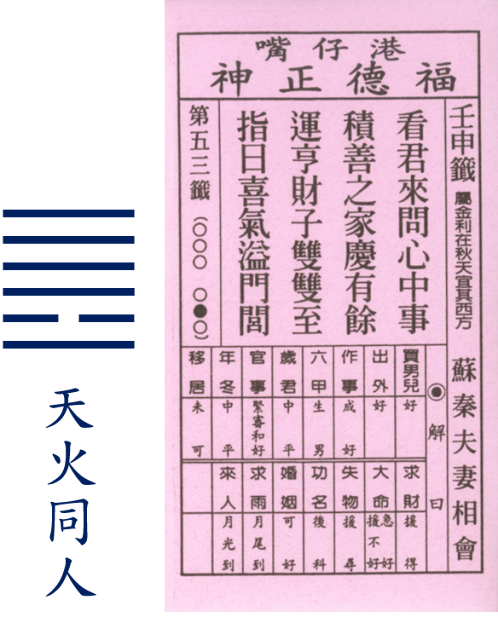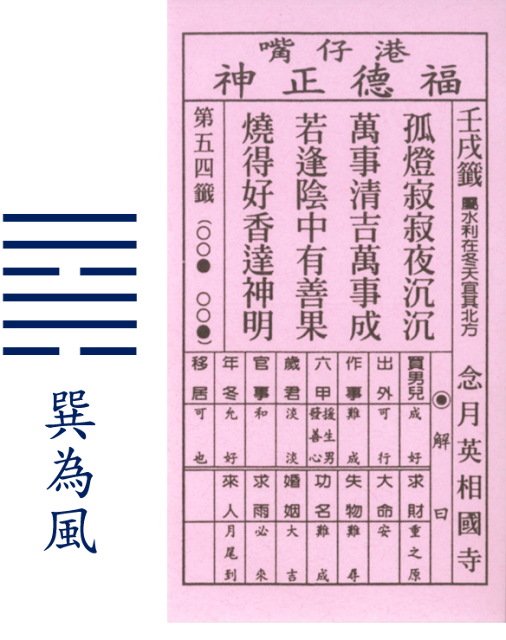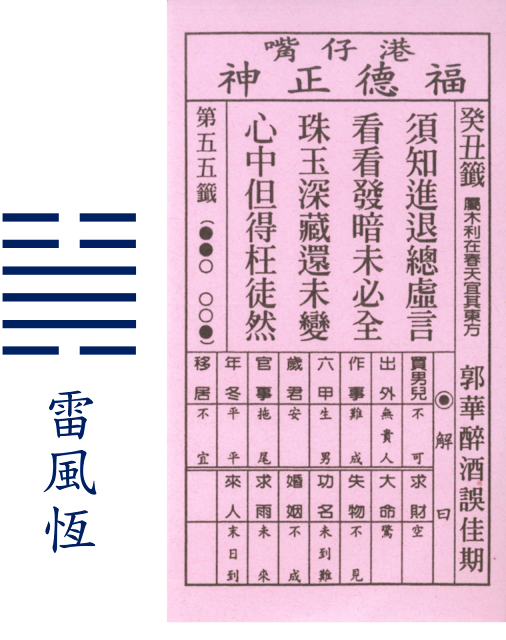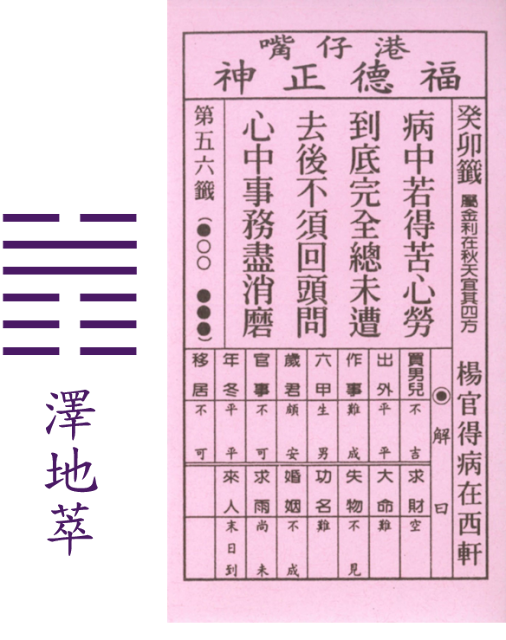第53籤 同人卦 53th DMP: TongRen

第53籤 同人卦 53th Divine Metaphor Paper: TongRen (Fellowship with People) 同人:同人于野,亨。利涉大川,利君子貞。 初九:同人于門,無咎。 六二:同人于宗,吝。 九三:伏戎于莽,升其高陵,三歲不興。 九四:乘其墉,弗克攻,吉。 九五:同人,先號咷而後笑 - 大師克相遇。 上九:同人于郊,無悔。 --------------------------- 註:大部份的易經書籍,爻詞斷點均以逗號標註,且第一句爻詞為:同人于野,亨。利涉大川,利君子貞。本宮以文法邏輯判斷略作調整。 --------------------------- 同人:同人于野,亨。利涉大川,利君子貞。 同人卦:與相志同道合者相識於江湖,通達順利。有益於合作冒險開發,有益於人格高尚者堅守正道。 TongRen: Meet people with similar interests in the wilderness, the communication is smooth. Good for getting through the dangers, and good for those with noble personality to stick to the right way. 同人: 這是古文,不適合用現代的新詞意解釋。在古文中這個詞的意思為志同道合的人。 Like-minded people. 野: 郊外、村外。 古人的生活空間,以城牆內的城市為政治、宗教與商業活動的中心。城牆外為田地,田地以外的廣大未開發地則稱為野。對照第一、二爻的爻詞,可了解相會於曠野,指的是與自己有相同志趣且可一起努力打拼圓夢的人,不在熟悉的家人、親戚、鄰居中,而是在那廣大且非自小熟悉的環境中,那個環境,便是人長大後需出去闖盪的江湖了。 與同人卦卦詞相近的戲曲: 電影版 搖曳露營△ (預告片) --------------------------- 初九:同人于門,無咎。 最初的陽爻:在家人中找尋有相同志趣的人,沒有罪責。 Nine at the beginning means: Find like-minded people in your family, no guilt. 大部份人一開始生活的團體即是家庭,所以會先在家人中找尋有相同志趣的人合作,這


